Recent Blog Posts
Charged with a Sex Crime in Connecticut?
 Sex crimes cause untold suffering for their victims, but can also cause serious trouble for those unjustly accused. Because these crimes are so serious, sometimes law enforcement will arrest and charge a defendant when they lack sufficient evidence to get a conviction. If this has happened to you, it is crucial that you seek out an attorney with the experience to help you fight this type of charge before its consequences can be visited on you.
Sex crimes cause untold suffering for their victims, but can also cause serious trouble for those unjustly accused. Because these crimes are so serious, sometimes law enforcement will arrest and charge a defendant when they lack sufficient evidence to get a conviction. If this has happened to you, it is crucial that you seek out an attorney with the experience to help you fight this type of charge before its consequences can be visited on you.
A Variety of Charges
Sex crimes under Connecticut law are fairly wide-ranging, as the actual conduct in question may range from a single touch to the more popularly understood perception of sexual assault. However, any offense that can be shown to have a sexual or prurient component may qualify as a sex offense - for example, Connecticut law establishes that any touching of a sexual nature outside the clothing is sexual assault in the fourth degree, which can be a Class D felony or Class A misdemeanor, depending on the specific situation.
Does Connecticut Have a Hate Crime Law?
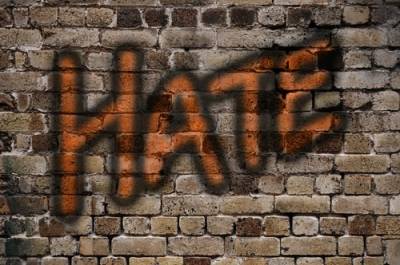 We live in a volatile age at this point in time, with beliefs that might once have been restricted to private circles finding a place in the open, right in the middle of our national discourse. While free speech should be protected, there must also be limits on what others can say and do without repercussions, and this rationale is what gives rise to hate crime laws. Connecticut’s is fairly specific and strict, aiming to protect marginalized people from crimes based solely on their innate characteristics. If you worry that you have committed a hate crime, you may face some serious penalties based on one bad decision.
We live in a volatile age at this point in time, with beliefs that might once have been restricted to private circles finding a place in the open, right in the middle of our national discourse. While free speech should be protected, there must also be limits on what others can say and do without repercussions, and this rationale is what gives rise to hate crime laws. Connecticut’s is fairly specific and strict, aiming to protect marginalized people from crimes based solely on their innate characteristics. If you worry that you have committed a hate crime, you may face some serious penalties based on one bad decision.
“Actual Or Perceived” Characteristics Protected
Every state’s hate crime laws list characteristics protected from harassment or intimidation under its aegis. Connecticut’s primary hate crime law prohibits causing physical injury based on an intent to discriminate or harass based on “actual or perceived” race, religion, disability, sex, gender identity or expression, or sexual orientation. In other words, if you have been the aggressor in an attack on someone, and it was based on one of the listed characteristics, you may have committed a hate crime.
What Is a Connecticut Pretrial Diversion Program?
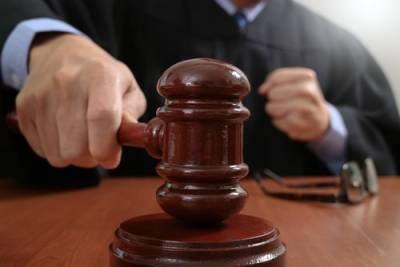 When you have been convicted of a crime in Connecticut, you must face the consequences. However, if it is your first brush with the law, or if your conviction is for a crime that is neither particularly violent nor sexual, you may be eligible for a consequence called pretrial diversion. Pretrial diversion programs are meant for those with low-level convictions, designed to try and help people learn from their mistakes instead of skipping right to punitive measures. Contacting an attorney to see if you are eligible may be a good move.
When you have been convicted of a crime in Connecticut, you must face the consequences. However, if it is your first brush with the law, or if your conviction is for a crime that is neither particularly violent nor sexual, you may be eligible for a consequence called pretrial diversion. Pretrial diversion programs are meant for those with low-level convictions, designed to try and help people learn from their mistakes instead of skipping right to punitive measures. Contacting an attorney to see if you are eligible may be a good move.
For Lower-Level Crimes
Pretrial diversion programs use several different techniques to try and guide offenders onto a better path, including counseling, community services, drug treatment, and random testing, and education. Those who have been convicted of relatively minor crimes like public drunkenness, criminal mischief, or simple marijuana possession (possession of a small amount of marijuana, with no intent to distribute) can have their record expunged if they complete the program satisfactorily.
Getting My Child’s Juvenile Record Expunged
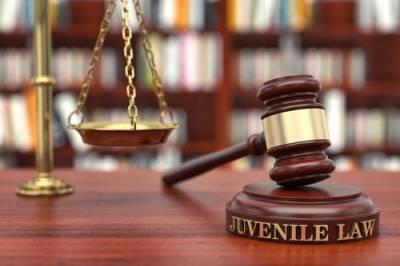 Some young people make bad choices and wind up with a criminal record, which can, in turn, cause them serious problems later in life. However, in Connecticut, it is often possible for juveniles to have their criminal records expunged, meaning that all (or most) of the offenses will be erased as if they had never existed. That said, not every juvenile record is eligible for expungement or sealing, and it is important that you be able to understand the options that you and your child may face.
Some young people make bad choices and wind up with a criminal record, which can, in turn, cause them serious problems later in life. However, in Connecticut, it is often possible for juveniles to have their criminal records expunged, meaning that all (or most) of the offenses will be erased as if they had never existed. That said, not every juvenile record is eligible for expungement or sealing, and it is important that you be able to understand the options that you and your child may face.
Three Routes Through The Legal System
Whether or not your child’s record can be expunged will largely depend on how the offense or offenses were disposed of by the Connecticut legal system. Your child will be assessed under one of three categories in the legal system, depending on the offense they have committed. They may have their case adjudicated in juvenile court, where they will be referred to as a juvenile offender; they may have their case removed to adult court and receive special “youthful offender” protections, or they can, if the offense is deemed serious enough, be tried as an adult, and have to navigate the court system as any other adult would.
Have You Committed a Stamford Computer Crime?
 With the increasing prevalence of powerful technology in this day and age, more and more cybercrimes are occurring, and more consumers are at risk. However, it can also be more difficult in some cases to determine whether or not you have actually committed a computer crime. If you have questions or concerns about computer-related crimes, it is important to contact an experienced attorney who can guide you in the right direction.
With the increasing prevalence of powerful technology in this day and age, more and more cybercrimes are occurring, and more consumers are at risk. However, it can also be more difficult in some cases to determine whether or not you have actually committed a computer crime. If you have questions or concerns about computer-related crimes, it is important to contact an experienced attorney who can guide you in the right direction.
Cybercrime Laws Are Vague
Connecticut’s computer crime law is quite wide-ranging, but because of this, it can also be vague, at least to the average person. There are five different broad categories of offenses that qualify as computer crimes under the relevant law: unauthorized access to a computer system, theft of computer services, interruption of computer services, misuse of computer system information, and destruction of computer equipment. These headings can mean little or nothing to the man on the street.
Criminal Law and Immigration Consequences in Connecticut
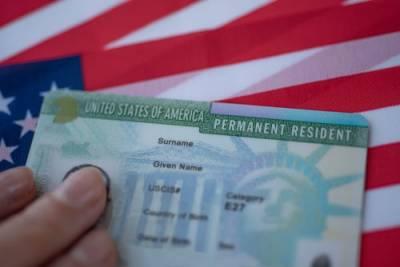 Normally, when a person is convicted of a criminal offense, they serve their sentence and that is that. However, if a non-U.S. citizen is convicted of a criminal offense in Connecticut, they may face far more severe consequences than fines or a period in jail. Criminal convictions for immigrants can be very severe, with the most extreme being deportation. If you are facing criminal charges in Connecticut, you need an attorney who understands the potential consequences.
Normally, when a person is convicted of a criminal offense, they serve their sentence and that is that. However, if a non-U.S. citizen is convicted of a criminal offense in Connecticut, they may face far more severe consequences than fines or a period in jail. Criminal convictions for immigrants can be very severe, with the most extreme being deportation. If you are facing criminal charges in Connecticut, you need an attorney who understands the potential consequences.
Two Types of Crimes
U.S. immigration law recognizes two types of crimes. A crime involving moral turpitude (CIMT) is not something that one will find in a law book; it is a sort of catch-all title designed to categorize any crime that is said to have a component involving ‘moral turpitude’ like dishonesty or fraud. An aggravated felony is another category title that is used for crimes of violence or nonviolent crimes like money laundering or obstruction of justice on a grand scale. That said, it can be very difficult to determine whether the crime you have been convicted of fits either of these categories.
Marijuana Possession Charges in Connecticut
 As with any other drug, being charged with possession of marijuana can lead to serious consequences even if you do not wind up serving jail time. A drug conviction on your record can lead to problems in life, especially for juveniles, so if you have been arrested and charged with possession, it is crucial to try and find an experienced attorney who can help you have the best chance possible at proving your innocence.
As with any other drug, being charged with possession of marijuana can lead to serious consequences even if you do not wind up serving jail time. A drug conviction on your record can lead to problems in life, especially for juveniles, so if you have been arrested and charged with possession, it is crucial to try and find an experienced attorney who can help you have the best chance possible at proving your innocence.
There Are Still Consequences
While it is true that possession of small amounts of marijuana has been decriminalized - if you are stopped with less than one ounce of a “cannabis-like substance,” you will have committed a civil infraction, rather than a crime - this does not apply to amounts over one ounce. If you are stopped with between one and four ounces, this is a misdemeanor charge, but any amount over four ounces is a felony, even on a first offense. Even the lowest level felony can lead to fines of up to $5,000 and up to 10 years in jail.
Robbery Charges in Connecticut
 There are several different types of theft crimes in Connecticut, from simple larceny to embezzlement to shoplifting. However, there are certain types of theft crimes that differ in their execution from more simple acts - robbery being the most potentially remarkable. Unlike most other theft crimes, robbery has an element of force to it that can lead to violence. If you have been charged with robbery or other home invasion crimes, you need an experienced attorney on your side to guide you through the process.
There are several different types of theft crimes in Connecticut, from simple larceny to embezzlement to shoplifting. However, there are certain types of theft crimes that differ in their execution from more simple acts - robbery being the most potentially remarkable. Unlike most other theft crimes, robbery has an element of force to it that can lead to violence. If you have been charged with robbery or other home invasion crimes, you need an experienced attorney on your side to guide you through the process.
Many Factors to Consider
Robbery is defined as a person in the process of committing larceny either using or threatening to use force for two possible purposes: (1) demanding or threatening someone so they provide the property sought, and/or (2) preventing anyone from trying to stop the larceny in progress. For example, a person who steals money from a convenience store cash register without anyone noticing has committed larceny, but a person who holds a gun on the clerk and demands the money has committed robbery, because of the use of force.
Are You Facing Domestic Violence Charges?
 Domestic violence is a serious crime with serious consequences, and those who engage in it often find themselves with ruined reputations and derailed lives. However, it is not impossible for those who are innocent to be faced with the same consequences, even though they are not guilty. Mistakes happen in investigations, or in rare cases, a malicious spouse may try to smear the other - no matter what the cause if you have been charged with domestic violence in Connecticut, you need an attorney who will act fast to get at the truth.
Domestic violence is a serious crime with serious consequences, and those who engage in it often find themselves with ruined reputations and derailed lives. However, it is not impossible for those who are innocent to be faced with the same consequences, even though they are not guilty. Mistakes happen in investigations, or in rare cases, a malicious spouse may try to smear the other - no matter what the cause if you have been charged with domestic violence in Connecticut, you need an attorney who will act fast to get at the truth.
Not a Separate Crime
Connecticut does not classify ‘domestic violence’ as a separate crime; instead, ‘domestic’ or ‘family’ violence is charged as whatever specific crime occurred (such as battery or sexual assault), just against a family member - there are differences in the prosecution of such a case, but the end sentence if convicted is generally similar. In addition, the definition of ‘family member’ in Connecticut is very wide, covering not only blood family but also spouses, former spouses, co-parents, roommates, and many other classifications.
Committed a Violent Crime in Fairfield County?
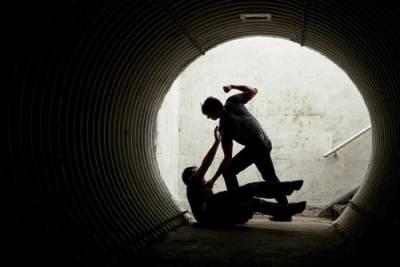 Violence is never the answer unless in self-defense. Sometimes, though, things simply happen, and you wind up in the very serious situation of being charged with a violent crime in Connecticut. Violent crimes are the most harshly punished in the state, and even if the victim survives, you may face an extremely severe penalty including years in prison. If you have been charged with a violent crime, you need an experienced attorney on your side as soon as possible.
Violence is never the answer unless in self-defense. Sometimes, though, things simply happen, and you wind up in the very serious situation of being charged with a violent crime in Connecticut. Violent crimes are the most harshly punished in the state, and even if the victim survives, you may face an extremely severe penalty including years in prison. If you have been charged with a violent crime, you need an experienced attorney on your side as soon as possible.
Violent Crime Receives Stiff Penalties
There are many, many different types of violent crimes, and they come in two types. One type is inherently violent - for example, murder requires violence and bodily harm to be successfully completed. The other type is conditionally violent - an example would be a robbery, which does not necessarily have to involve violence unless the perpetrator wants it to, or finds it necessary. Intent does matter in many crimes, but not all; you would generally be punished for the commission of a violent crime as long as it can be proven that you did so, but demonstrated intent might push your sentence into a higher bracket, so to speak.







